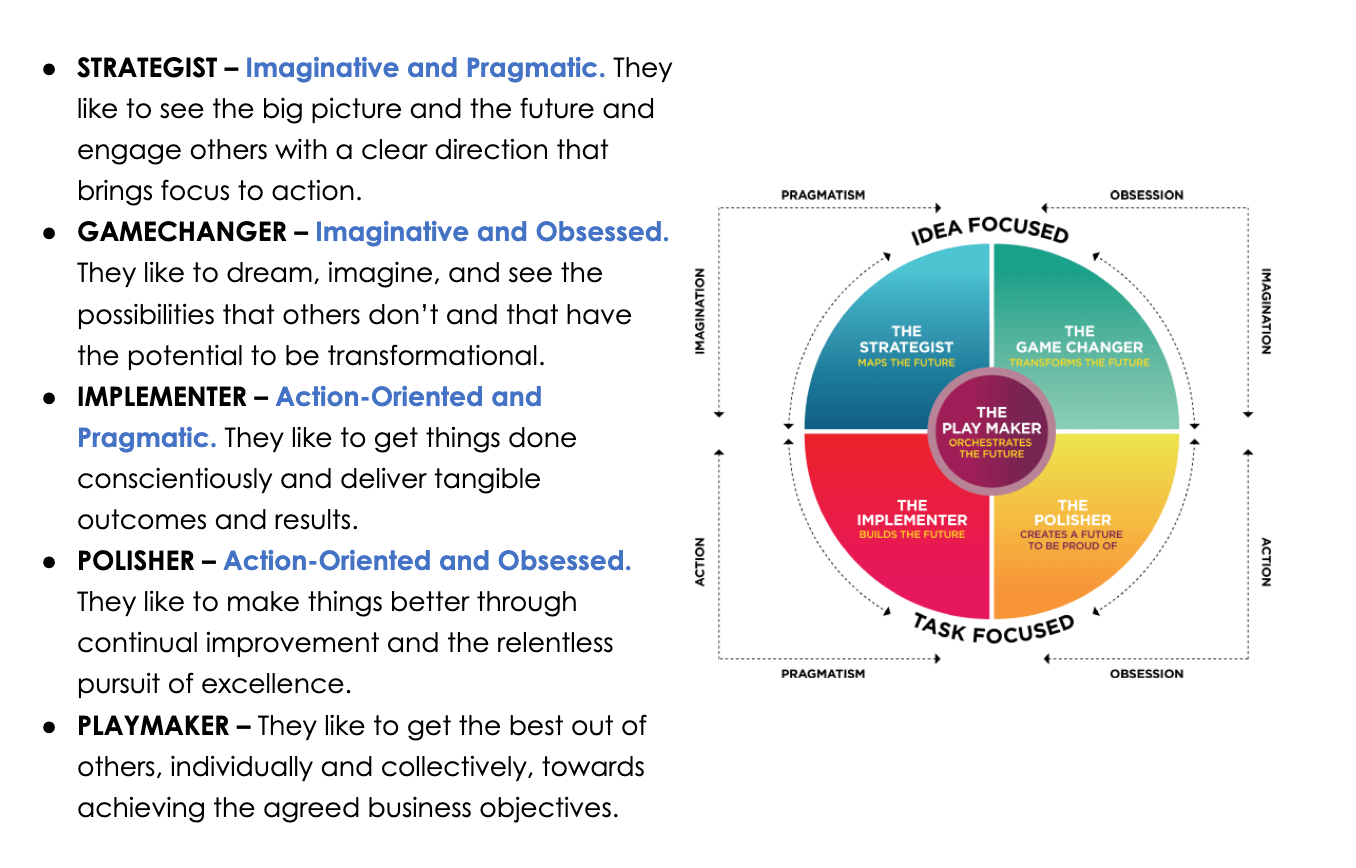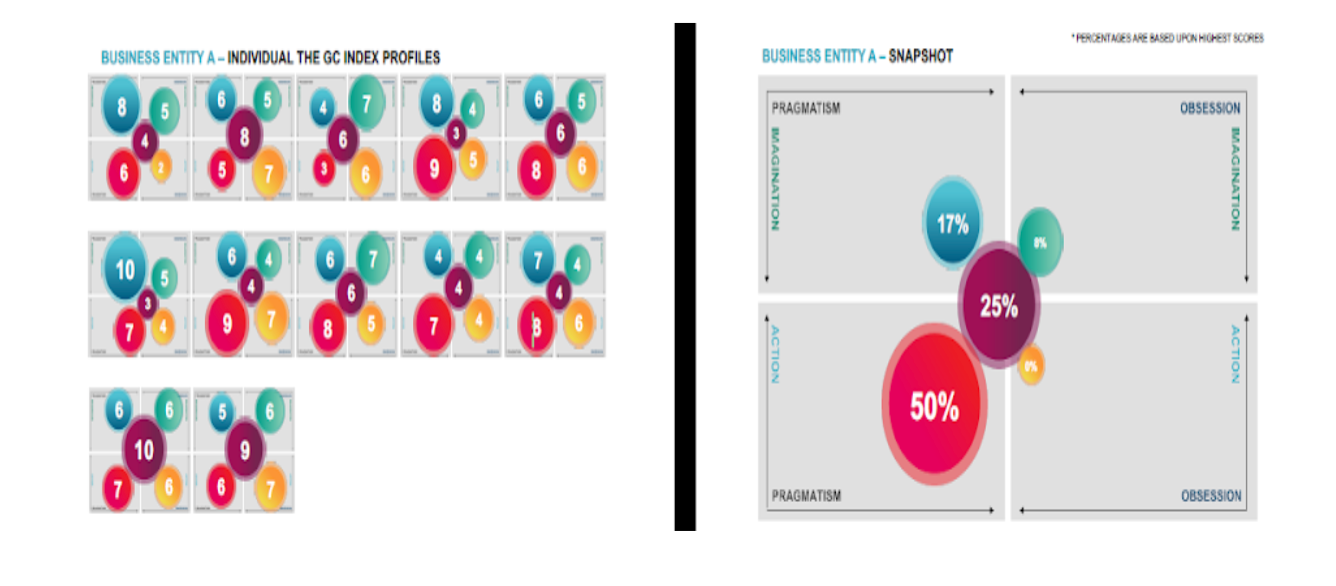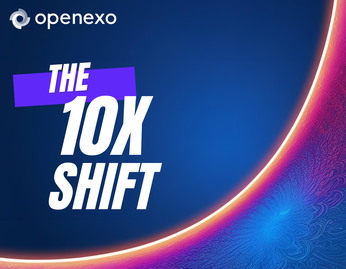
People Capabilities – What Do Exponential Organizations Do Differently?
Exponential Organizations don’t succeed by chance but by choice. And one of the critical choices they make and execute is to DISCOVER AND ALIGN their people’s energy and skills to the business priorities to stay ahead of the curve.
It’s often talked about that nearly 70% of the change and transformation initiatives undertaken by organizations are often abandoned or don't deliver the desired and expected impact. In a recent article on the ExO Insights, a fellow ExO Coach, Pedro Lopez Sela, highlighted that nearly 75% of the startups fail to survive beyond their first two years.
One of the known root causes of these failures is the lack of people's capabilities to enable the envisioned strategic and operational goals, especially those related to Innovation.
As per a recent survey,
This is where Exponential Organizations (ExOs) are different.
They don’t succeed by chance but by choice. And one of the critical choices they make and execute is to DISCOVER AND ALIGN their people’s energy and skills to the business priorities to stay ahead of the curve. They do so both in the context of ‘Exploiting the CORE’ – to radically improve the efficiency and effectiveness levels of the current business model, as well as ‘Exploring the EDGEs’ - to invent and innovate new business and operating model (s).
Based on my engagements with startups, scaleups, and incumbents on their exponential journeys as well as through studying the best practices of several Exponential Organizations in the context of people capabilities, I consider four key tenets that act as the foundation of delivering superior business results.
- First and foremost, AUTONOMY (one of the 11 exponential attributes in the ExO success formula of MTP + SCALE + IDEAS) is a prerequisite for ‘permissionless innovation.’ Creating decentralized structures and relying on peer rather than authority-based accountability leads to increased agility and higher morale.
- People have DIFFERENT PROCLIVITIES when it comes to making contributions in terms of leading, influencing, and getting things done. And as we know well, people deliver to their full potential when working on roles/tasks aligned to their preferences.
- Different stages of the BUSINESS LIFECYCLE require different cognitive, emotional, and action-taking orientations and skillsets. Only an appropriate and timely combination of these results in a force multiplier that helps an organization achieve its strategic and operational goals.
- Long-term business success is not down to one person or one idea – it’s a team and continuous effort. Sustainably high business performance requires DIVERSE & INCLUSIVE TEAMS where people ‘potently’ contribute towards defining and executing the future direction of the organization.
To put these four key tenets into practice and facilitate the discovery and alignment of people capabilities to the organization’s strategic and operational goals, I have been leveraging and deploying a unique tool called the GC Index®.
The GC Index® measures and describes five different proclivities in which people are strongly driven and inclined to make an impact and contribution to a Business Cycle. These differences are underpinned by two critical dimensions - an individual’s Imagination (the capacity for original thought) and Obsession (the drive to turn ideas into reality).

So, as an example, the illustrative image below shows that the business under consideration had people with Implementers and Playmakers as the dominant proclivities.

Sustaining the current performance levels, adherence to the SOPs (standard operating procedures), and creating a nice cohesive working environment would be deemed successful in this organization. But there is certainly very low energy and drive to challenge the status-quo towards excellence, let alone radical innovation. While such an organizational profile might be appropriate for survival, it is certainly insufficient for thriving.
To truly succeed in today’s VUCA and hyper-competitive era, the adage ‘Innovate or Die’ has never been so prominent. Every organization (startup, scaleup, and incumbent alike) needs to create and deliver innovative products & services and future-ready business and operating models. And this calls for having individuals and teams who are Game-Changers.
The game-changers embody the Darwinian drive to both survive and thrive by not only adapting positively to their environment and proactively shaping it with anticipation and moonshot vision.
They believe in the art of the possible and are driven by the motto, wonderfully expressed in the quote by the legendary Muhammad Ali.
“Impossible is just a big word thrown around by small men who find it easier to live in the world they’ve been given than to explore the power they have to change it. Impossible is not a fact — it’s an opinion. Impossible is not a declaration — it’s a dare. Impossible is potential. Impossible is temporary. Impossible is nothing.”
Having such an orientation is imperative considering the short business lifecycles we have been witnessing over the last two decades. And hence the need to identify and create the next set of S-curves in any business through continuous innovation – to stay ahead of the curve. And the more exponential your vision, the more you need to nurture and embed game-changing talent in your organization.
But having game-changing talent is not sufficient.
We often see organizations saying that want to / already hired people who will make a difference. But they end up confining them to a process with the same old corporate-wide metrics and assessment frameworks. Follow the same old process, and the needle will never shift.
By their very definition, Exponential Organizations are non-linear and don’t carry on as ‘normal.’ They strongly believe in the motto that Salim Ismail called “Be the Disruptor or Get Disrupted. There’s no Middle Ground.”
Driven by an MTP (Massive Transformative Purpose) and the zeal to Disrupt and Thrive, Exponential Organizations focus on acquiring and developing game-changers and fostering a balanced set of people capabilities. They fully understand that having great ideas is imperative but not sufficient for success. They recognize the need to have Strategists (to make sense of the game-changing ideas), Implementers (to bring ideas to fruition), Polishers (to make the ideas brilliant), and the Playmakers (to act as a glue and make all work together).
Exponential Organizations act on the philosophy that Not everyone can be a game-changer, but everyone can make a game-changing contribution.
And that’s what sets them apart and enables them to realize 10x bolder and better concepts and drive them 10x faster and cheaper through implementation.
If you want to ascertain your own, team’s, or organization’s drive and energy and leverage the GC Index® to discover and align your people’s capabilities towards delivering your strategic and operational business goals – then reach out to embark on an exponential journey.

ExO Insight Newsletter
Join the newsletter to receive the latest updates in your inbox.









